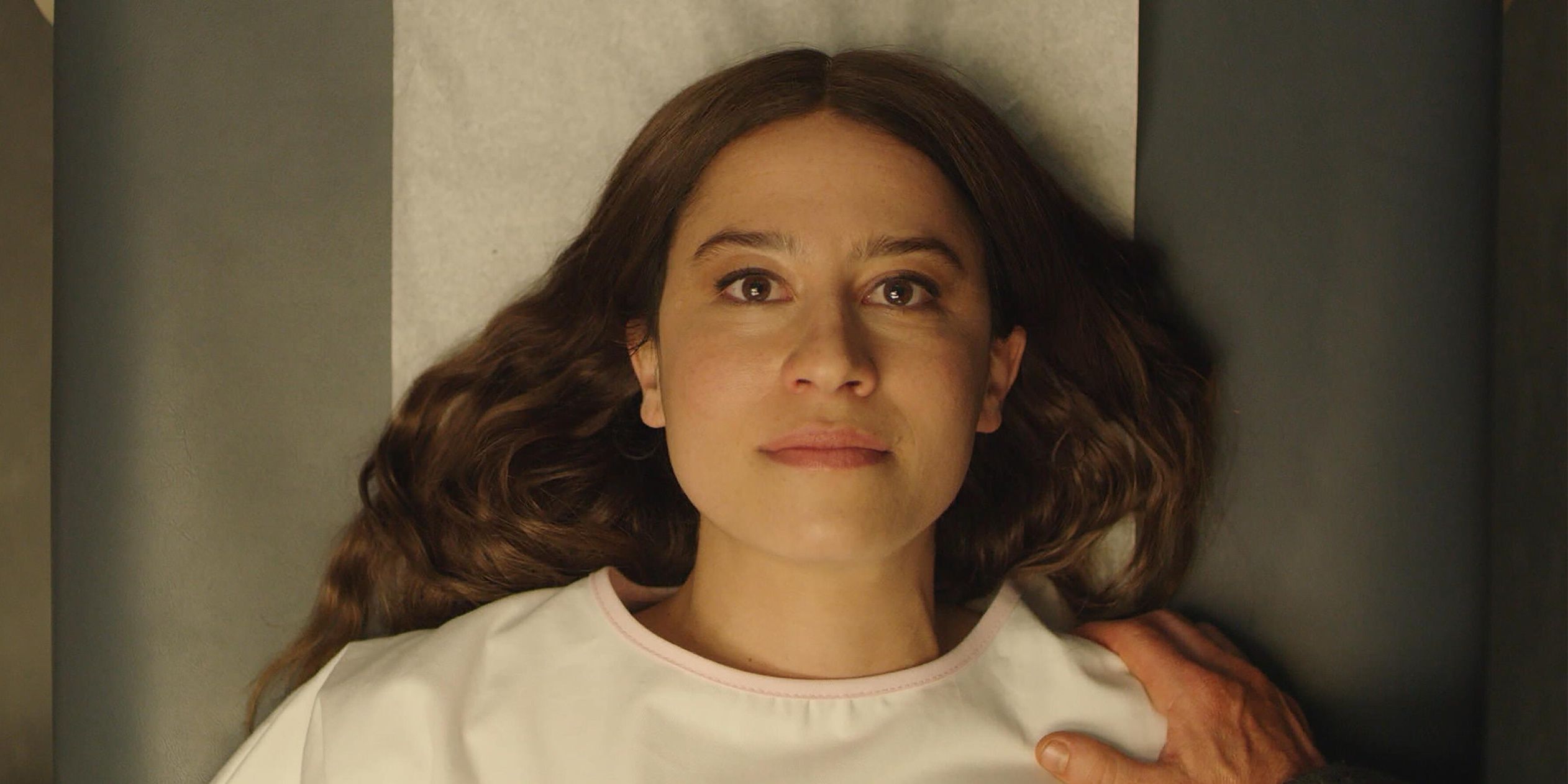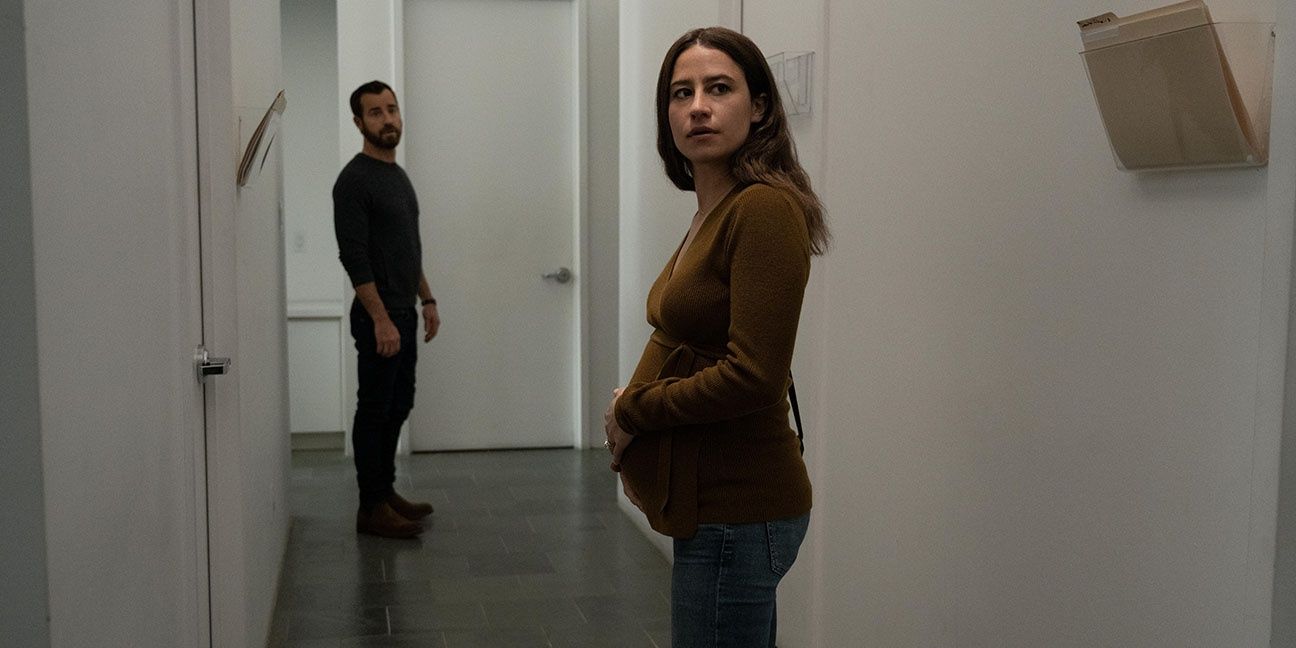
There are innate anxieties and horrors that come with every moment of life, explored in countless films and television shows. Fearful commentary has never been more famous or regarded than in 1968’s Rosemary’s Baby. The iconic psychological horror continues to cast a large shadow over those who try to follow in its footsteps. Borrowing from its predecessor, A24's False Positive, released by Hulu and directed by John Lee, attempts to bring the plot of pregnancy horror into the modern landscape while making ground of its own.
False Positive follows Lucy (Illana Glazer), a woman who seems to have it all — a rising career in marketing and a loving husband, Adrian (Justin Theroux). After trying to have a child for two years, the couple decides to seek out aid from Dr. John Hindle (Pierce Brosnan), a world-renowned fertility doctor and former teacher of Adrian. With an original method of insemination, Hindle is able to get Lucy pregnant. Common with fertility procedures, Lucy is pregnant with three babies, twin boys, and a girl. The couple is ecstatic, but for viewers, something already feels off. The feeling can be attributed to the stellar performance Brosnan delivers as Hindle, calm and collected with a dark undercurrent, and the film's polished look. The offices are too clean, the nurses too pretty, and the process too simple.
RELATED: This Netflix Horror Movie Is Surprisingly Feminist
Fears are confirmed halfway through the film’s runtime. Dr. Hindle suggests that Lucy and Adrian complete a selective reduction and keep the twin boys over the girl, whom Lucy has already named Wendy. Lucy’s agency starts to be chipped away as the men in her life spearhead her pregnancy. After the operation, Lucy’s grasp on reality begins to sway as she attempts to learn the truth about Dr. Hindle’s practices.

False Positive improves on the original narrative of Rosemary's Baby by bringing it into the 21st century. A valid criticism of the 1968 film is its treatment of the titular Rosemary (Mia Farrow) and her complete lack of agency over her pregnancy. False Positive’s Lucy, while still manipulated by the men around her, is still able to remain in control of some decisions. For example, she decides to have her baby delivered by a midwife rather than by Dr. Hindle, much to her husband’s chagrin.
The film offers a refreshing and vital commentary on modern motherhood and pregnancy. An air of tension is created through dialogue about fertility treatments and pregnancy. At the insistence of Adrian, Lucy joins a "mommy support group" formed by other mothers having babies through fertility procedures. The soon-to-be moms explain their stories and the almost obsessive lengths they have gone to have a child. As Lucy becomes more paranoid about Dr. Hindle, her husband, and the pregnancy as a whole, the people around her dismiss it as "mommy brain", using her own physical condition as a tool for gaslighting. It sadly works, and Lucy is in fear of her own mind, never sure that what is happening is even real.
In both Rosemary's Baby and False Positive, a mother's love is the ultimate conqueror. False Positive becomes its own story with how this love manifests, diving off on a new path from its original influence. Rosemary seems to wordlessly agree to raise her “child,” her love and desire for motherhood keeping her around, along with her total submission. This decision can be viewed as powerful, but still rather passive in its approach, especially when viewed from a modern lens. In False Positive, though, Lucy is much more reactive. When her pregnancy is revealed to be not what it seems, Lucy confronts the evil directly and with violent conviction.

It is after this moment that False Positive leaves the world of Rosemary’s Baby and other films like it, and steps into its own light. Lucy outright rejects her babies in favor of the child she truly wanted, going as far as hallucinating them floating out of her apartment window. To some, her decisions may read as selfish and unforgiving, but feel immensely powerful to watch unfold. Entering itself onto the list of horror films with controversial and divisive endings, False Positive lets Lucy grasp for the final word on her destiny, no matter what it may cost her. She seeks and gets revenge on the men who have wronged her, Hindle, her husband, and the system that she blames for her "mommy brain."
While it may not be hailed as a universal favorite, False Positive is an ambitious film with a terrifyingly modern twist on its Rosemary's Baby roots. Stellar performances by Brosnan and Glazer are the cherries on top of this sleek new entry into a genre that's always striving for something new.
False Positive is now streaming on Hulu.

